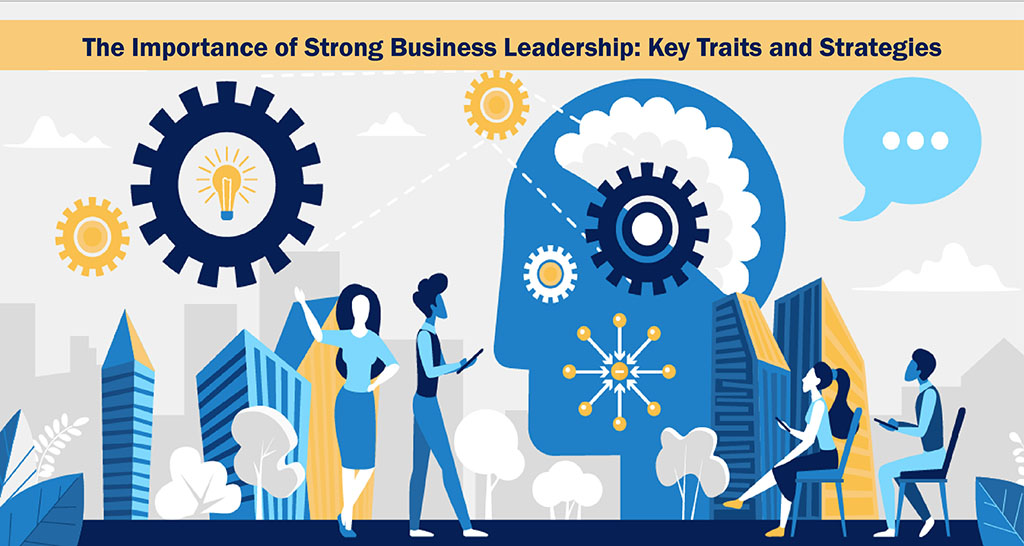Business leadership plays a crucial role in the success of any organization. It is the driving force behind a company’s culture, strategy, and overall direction. Effective business leaders are able to inspire and motivate their teams, make tough decisions, and steer their organization toward success. In this blog, we will explore the importance of strong business leadership, the key traits of effective leaders, and strategies for developing strong leadership skills.
Why Strong Business Leadership is Crucial for Success
Strong business leadership is crucial for success because it sets the tone for the organization. Leaders are responsible for creating a culture that promotes collaboration, innovation, and productivity. They are also responsible for developing a clear vision and strategy that guides the organization towards its goals. Without strong leadership, an organization can become directionless and close.
Effective business leaders also can navigate challenges and make tough decisions. They can adapt to changing circumstances, identify potential roadblocks, and develop solutions to overcome them. This ability is more important than ever in today’s rapidly changing business landscape.
Key Traits of Effective Business Leaders
There are several key traits that effective business leaders possess.
- Visionary: Effective business leaders have a clear vision of where they want their organization to go. They are able to communicate this vision to their team and inspire them to work towards a common goal.
- Decisive: Business leaders must be able to make tough decisions quickly and confidently. They must be able to weigh the pros and cons of each option and choose the best course of action.
- Strategic Thinker: Effective leaders are able to see the big picture and develop a long-term strategy that aligns with their vision.
- Strong Communicator: Leaders must be able to communicate their vision and strategy effectively to their team, stakeholders, and customers.
- Empathetic: Leaders who can understand and empathize with their team members are more likely to build trust and foster a positive work environment.
- Adaptable: Business leaders must adapt to changing circumstances and be flexible in their approach to problem-solving.
Strategies for Developing Strong Business Leadership Skills
- Seek mentorship and coaching: Working with a mentor or coach can provide valuable guidance and feedback on your leadership skills.
- Attend leadership training programs: Many leadership training programs are available to help individuals develop their skills and knowledge.
- Build strong relationships with team members: Leaders with strong relationships with their team members are likelier to inspire loyalty and commitment.
- Continuously learn and improve: Effective leaders always look for ways to improve their skills and knowledge.
- Embrace feedback: Leaders who are open to feedback are more likely to identify areas for improvement and take action to address them.
- Develop a growth mindset: Leaders with a growth mindset believe that their abilities and skills can be developed through hard work and dedication. This mindset encourages continuous learning and fosters resilience in the face of challenges.
- Practice self-awareness: Effective leaders deeply understand their strengths, weaknesses, and blind spots. Self-awareness can help leaders make better decisions and build stronger relationships with team members.
- Build a diverse team: Leaders who build diverse teams are likelier to foster innovation and creativity. A diverse team brings a variety of perspectives and ideas to the table, which can lead to better decision-making and problem-solving.
- Lead by example: Leaders who model the behaviour they expect from their team members are more likely to inspire trust and commitment. Leaders can encourage their teams to adopt similar behaviours and attitudes by setting a positive example.
- Foster a culture of accountability: Leaders who hold themselves and their team members accountable are likelier to achieve their goals. By setting clear expectations and following through on commitments, leaders can create a culture of accountability that drives results.
Develop strong emotional intelligence: Emotional intelligence is the ability to recognize and manage one’s own emotions and the emotions of others. Leaders with strong emotional








